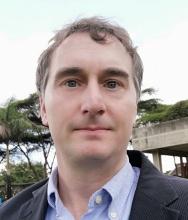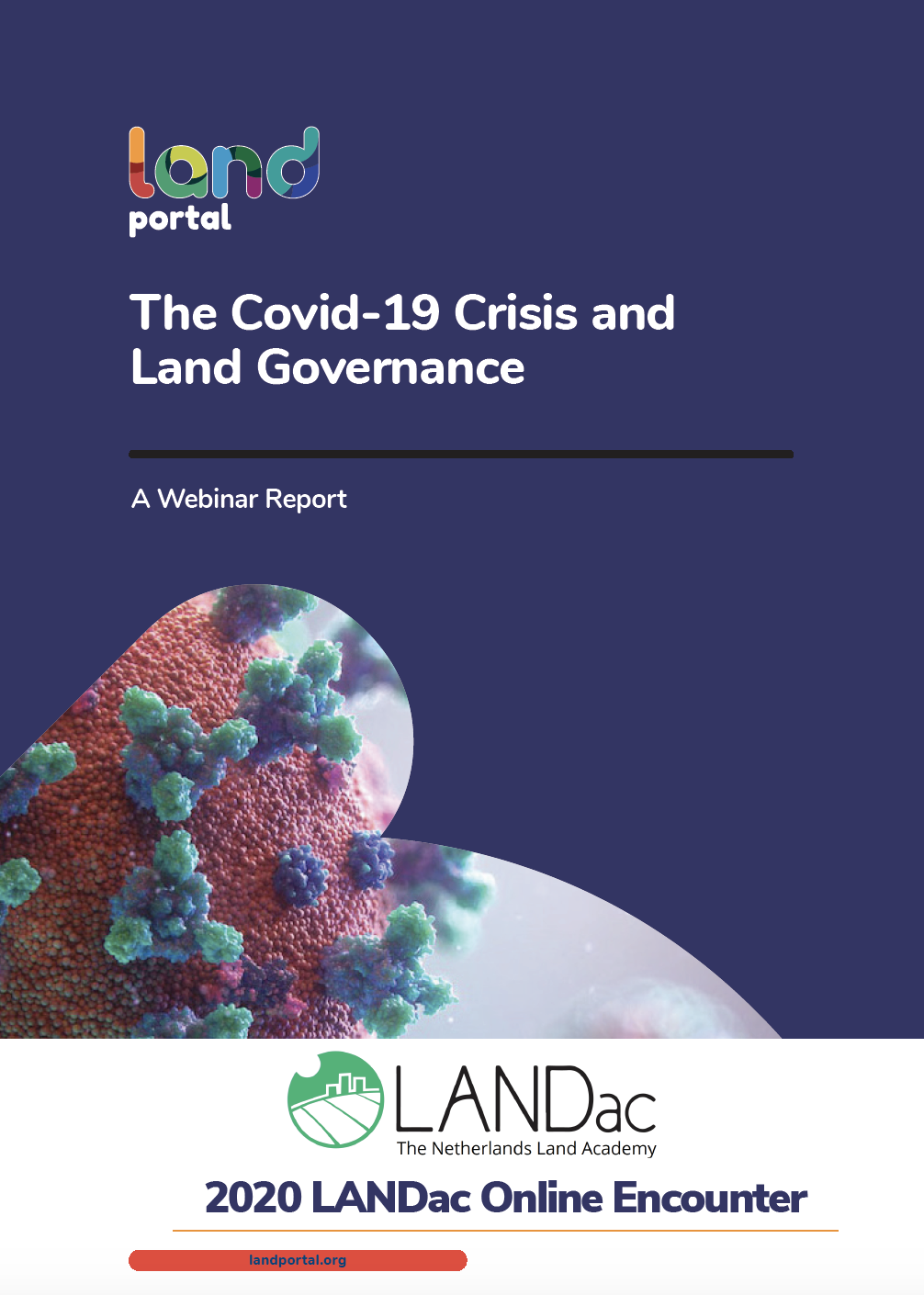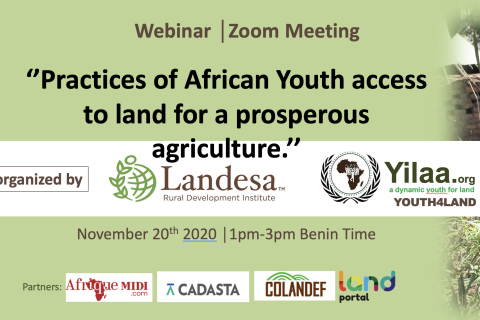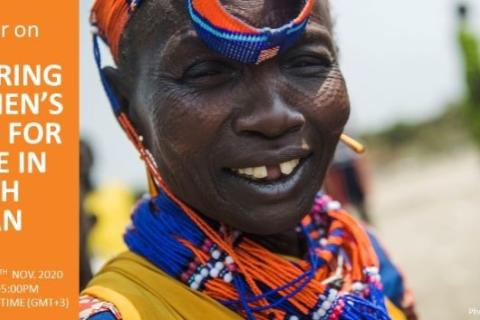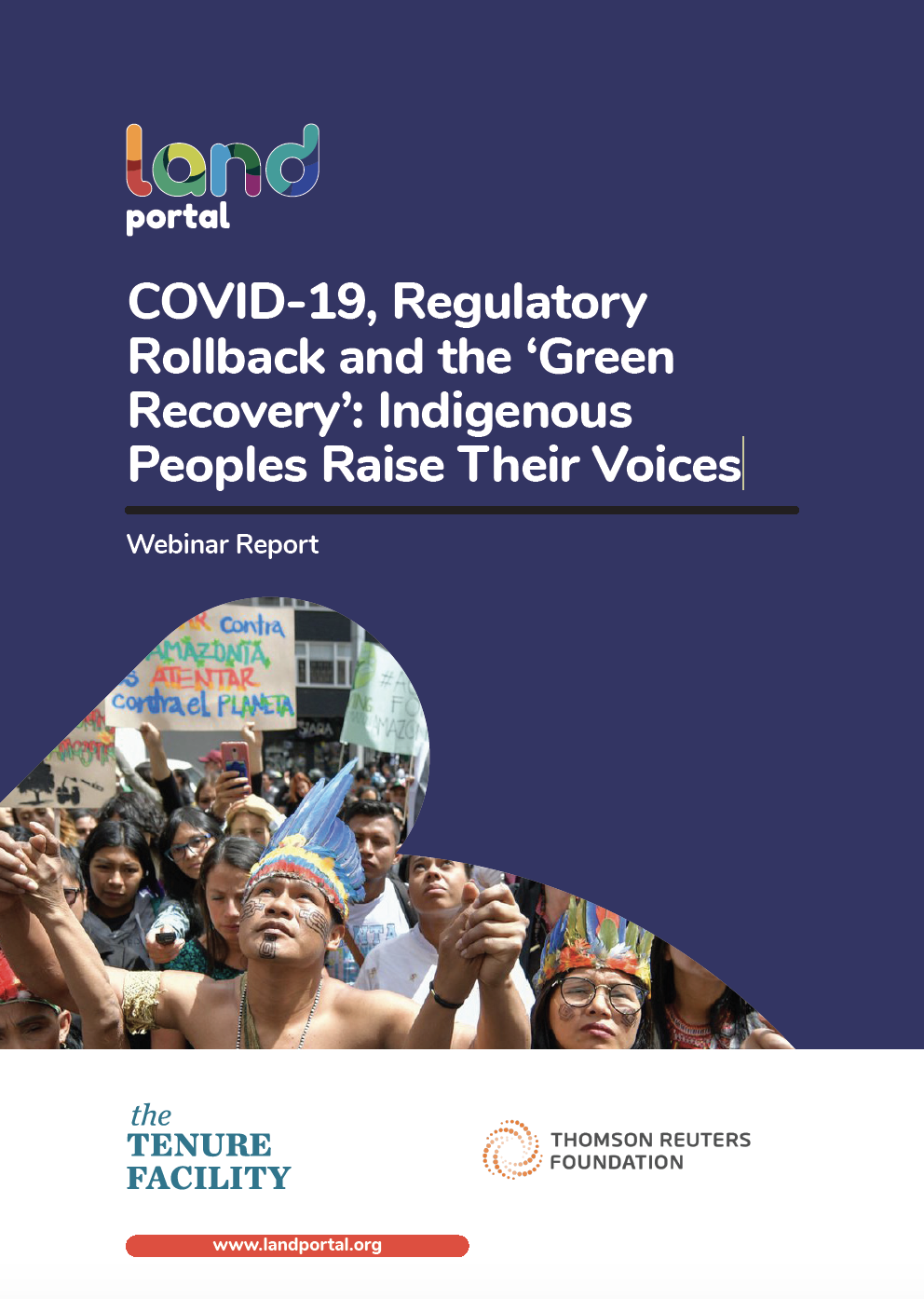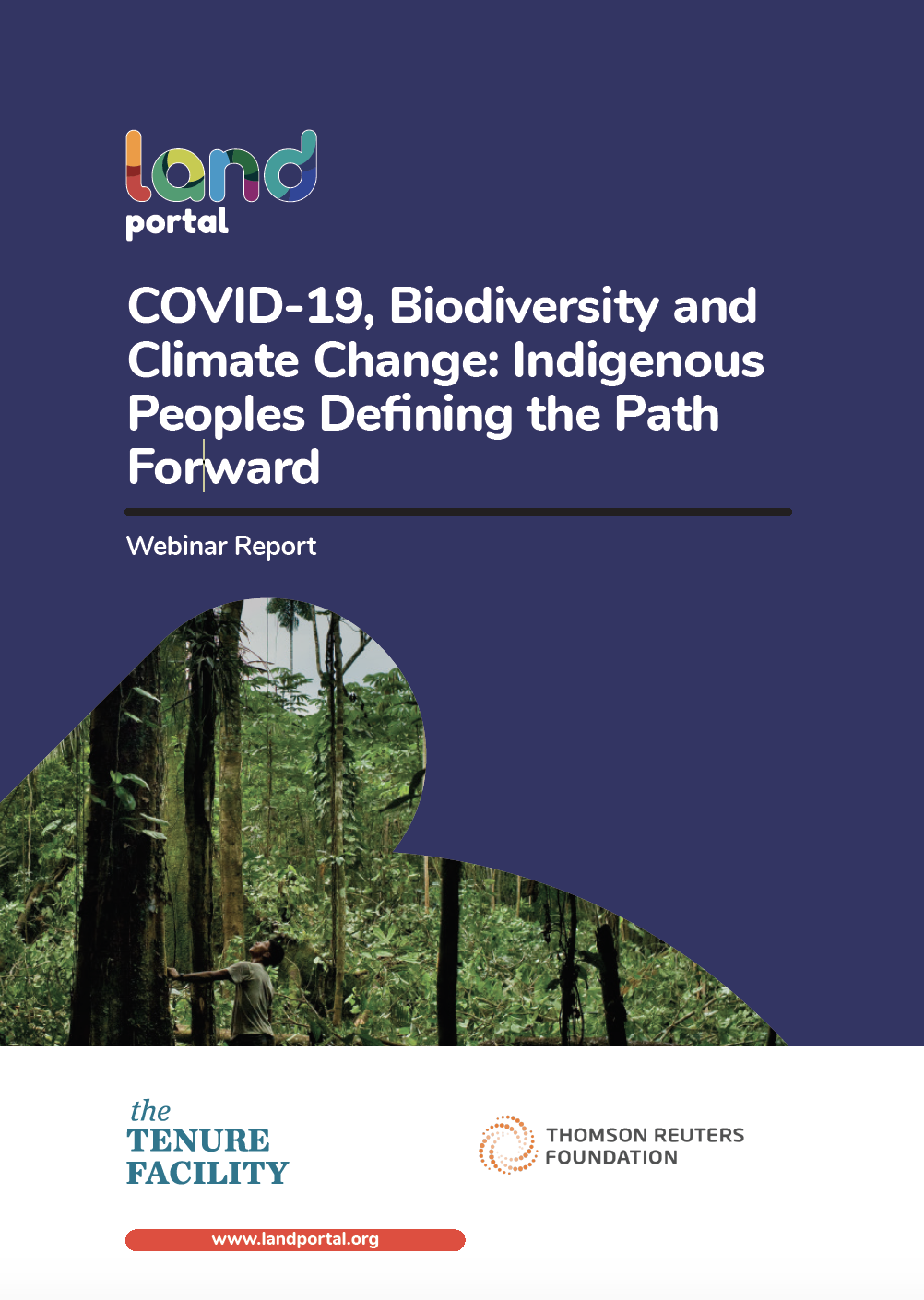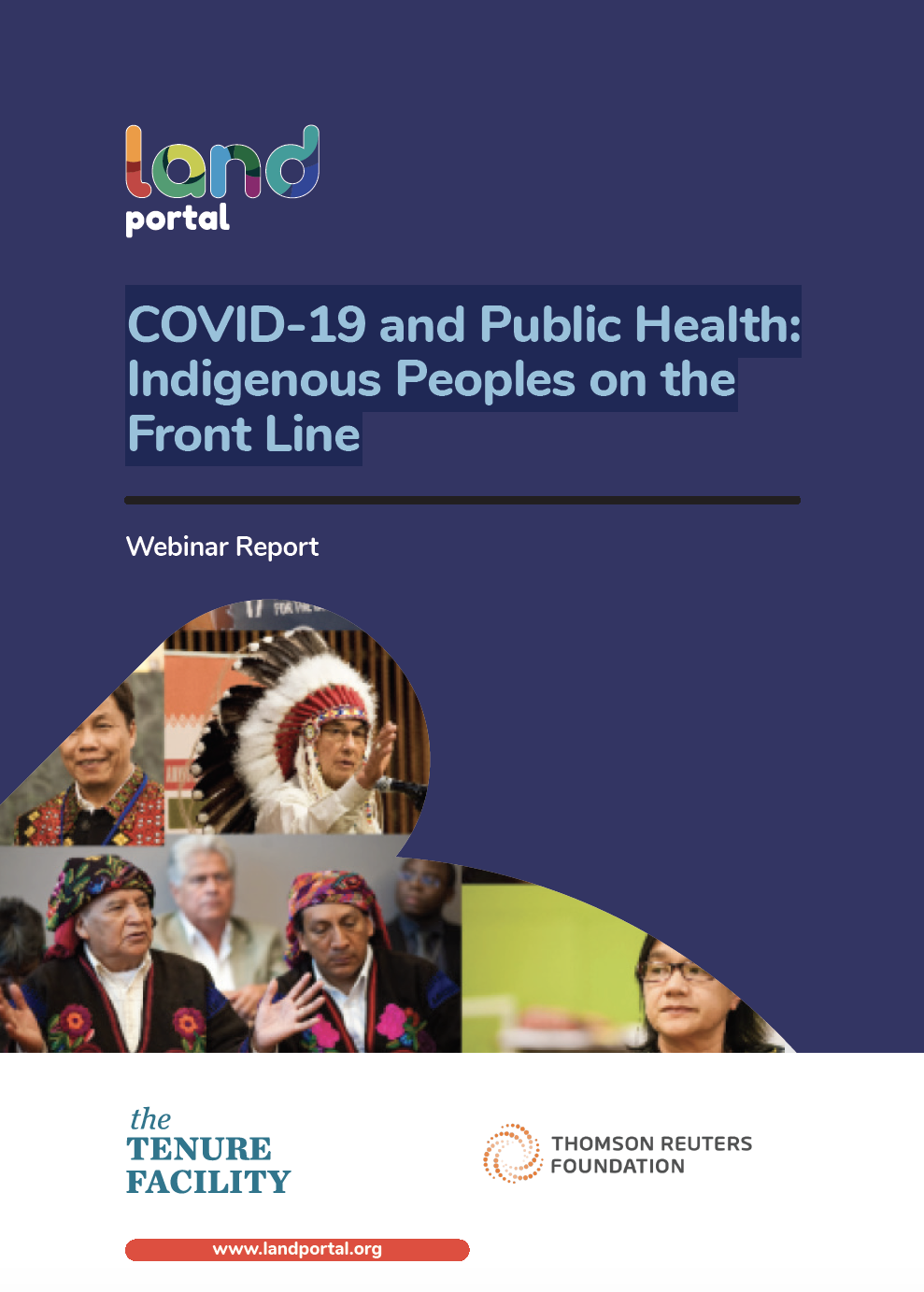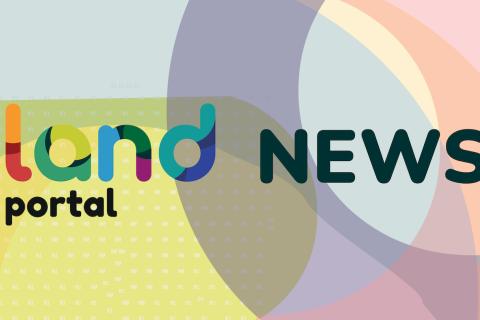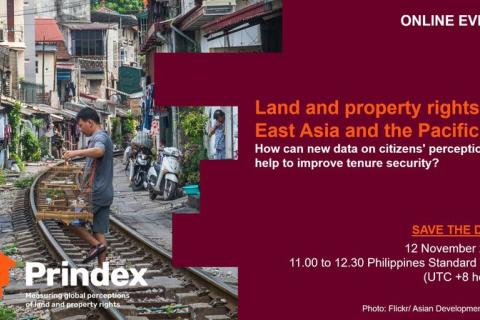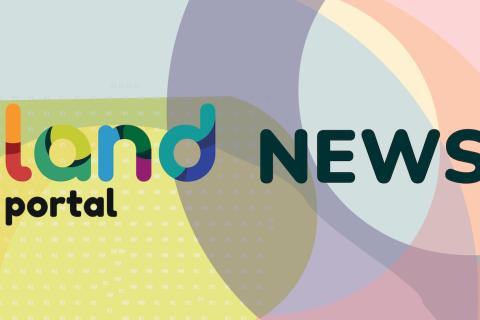Neil Sorensen joined the Land Portal as its Communications Specialist in October 2015. He has extensive experience leading communications for international organizations and developing relationships with civil society, donors, intergovernmental agencies, the media and the private sector. Previously, Neil worked for the International Fund for Agriculture Development (IFAD) as a Governing Bodies Officer and Strategic Adviser to the Secretary of IFAD. He has also led communications for three international organizations, including the International Land Coalition, the International Federation of Agricultural Producers (IFAP) and the International Federation of Organic Agriculture Movements (IFOAM). He holds a Master’s degree in Global Diplomacy from the University of London School of Oriental and African Studies (SOAS) as well as a Bachelor’s degree with a double major in German and Sociology from St. Cloud State University.
Details
Location
Contributions
Displaying 421 - 430 of 1145The Covid-19 Crisis and Land Governance
This webinar took stock of the emerging insights on the impacts of the COVID-19 pandemic on land rights and discussed concerns about the expected mid-to-long term impacts on equitable and sustainable land governance.
The discussion built upon previous efforts of the broader land governance community, including the Quick-scan Survey on the COVID-19 crisis by LANDac and the LANDdialogue, insights from the LANDac Professional Learning Programme and the webinar and discussion series ‘Land Rights Implications of COVID-19’ by the Land Portal Foundation and its partners.
Practices of African Youth access to land for a prosperous agriculture
Date Time: Nov 20, 2020 01:00 PM West Central AfricaDescription:
Securing Women’s Land for Peace in South Sudan
This webinar will provide critical information on the status of women’s land rights for peace building in South Sudan. Key research findings and project outcomes in securing women’s land rights for peace and stability in South Sudan will be disseminated.
COVID-19, Regulatory Rollback and the ‘Green Recovery’: Indigenous Peoples Raise Their Voices
COVID-19 has negatively affected indigenous land rights, particularly for those who already face food insecurity as a result of land confiscation or grabbing and the loss of their territories. Prior to the COVID-19 crisis, the expropriation of indigenous lands and natural resources and the increase in conflicts on their territories were already placing indigenous peoples in a particularly precarious situation. The crisis has led to reports of encroachment upon indigenous land by opportunists, such as illegal loggers and miners.
COVID-19, Biodiversity and Climate Change: Indigenous Peoples Defining the Path Forward
Indigenous Peoples and local communities manage more than half of the world´s land. These biodiverse ancestral lands are vital to the people who steward them and the planet we all share. But governments only recognize indigenous and community legal ownership of 10 percent of the world´s lands. Secure tenure is essential for safeguarding the existing forests against external forces. This is specifically true for forests managed by Indigenous Peoples, where much of the world’s carbon is stored.
COVID-19 and Public Health: Indigenous Peoples on the Front Line
Three-quarters of emerging infectious diseases are zoonoses, meaning they can be transmitted from animals to humans, with Ebola, SARS, MERS and now COVID-19 being examples. Scientists are warning that deforestation, industrial agriculture, illegal wildlife trade, climate change and other types of environmental degradation increase the risk of future pandemics.
Senior Land Administration and Geospatial Information Specialist
Do you want to build a career that is truly worthwhile? Working at the World Bank Group provides a unique opportunity for you to help our clients solve their greatest development challenges. The World Bank Group is one of the largest sources of funding and knowledge for developing countries; a unique global partnership of five institutions dedicated to ending extreme poverty, increasing shared prosperity and promoting sustainable development.
8th GLTN Partners Meeting 2020
The 2020 GLTN Partners’ Meeting happens at a vulnerable and critical time in the recent human history. The global pandemic has posed tremendous challenges on governments, even more so in developing countries.
Land and property rights in East Asia and the Pacific
How can new data on citizens' perceptions help to improve tenure security?
Free online event
Thursday 12 November 2020
11.00 - 12.30 Philippines Standard Time (UTC +8 hours)
Buried Voices in Honduras
The struggles of Indigenous leaders of the Honduran Peoples within a multiethnic, multicultural and multilingual country that is made up of four ethnic groups: mestizo or white, Indigenous (Lenca, Misquito, Tolupan, Chorti, Pech or Paya, Tawahka), Garífuna and Creole-Anglo-speakers, have turned into streams of blood through the years, under the rule of capitalism.

